Success Is Gauged By Self-Mastery
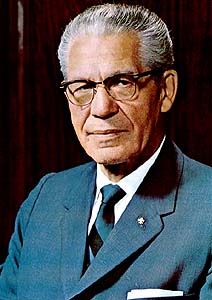
I think that this brief piece from The Ensign, originally published back in 1975, contains some valuable insights that you might find helpful:
“I should like to say a few words about self-discipline, self-control, or self-mastery which is so important to all of us if we are to accomplish what we set out to do and enjoy the blessings which we desire so much. First, I should like to quote some of the philosophers.
Plato said: “The first and best victory is to conquer self; to be conquered by self is, of all things, the most shameful and vile.”
And da Vinci once said: “You will never have a greater or lesser dominion than that over yourself.” Then he goes on to say that “The height of a man’s success is gauged by his self-mastery; the depth of his failure by his self-abandonment. . . . And this law is the expression of eternal justice. He who cannot establish dominion over himself will have no dominion over others.”
In other words, he cannot be a worthy father or leader. Solomon in all his wisdom made this meaningful statement: “He that is slow to anger is better than the mighty; and he that ruleth his spirit than he that taketh a city.” (Proverbs 16:32) There are two important elements in self-mastery. The first is to determine your course or set the sails, so to speak, of moral standards; the other is the willpower, or the wind in the sails carrying one forward. As I said before, character is determined by the extent to which we can master ourselves toward good ends. It is difficult to say just what builds good character, but we know it when we see it. It always commands our admiration, and the absence of it our pity. But it is largely a matter of willpower.”
–N. Eldon Tanner (American-born Canadian Teacher and Business Leader of The Church of Jesus Christ of Latter-day Saints, 1898-1982)
Continual Growth and Progress
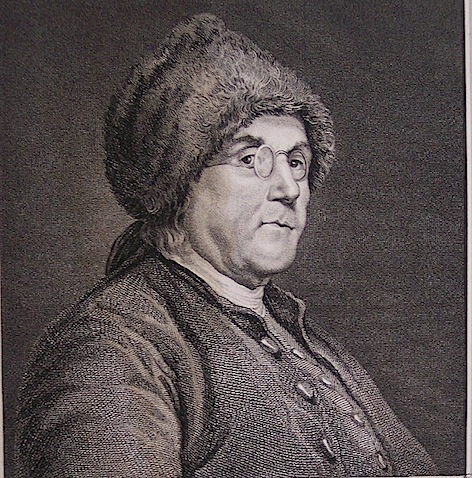
“Without continual growth and progress, such words as improvement, achievement, and success have no meaning.”
–Benjamin Franklin (American Author, Inventor and Diplomat, 1706-1790)
Success
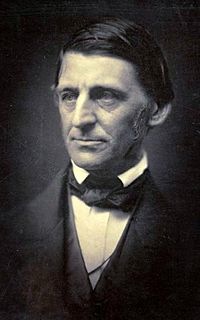
“To laugh often and much; to win the respect of intelligent people and the affection of children; to earn the appreciation of honest critics and endure the betrayal of false friends; to appreciate beauty; to find the best in others; to leave the world a bit better, whether by a healthy child, a garden patch or a redeemed social condition; to know even one life has breathed easier because you have lived. This is to have succeeded.”
–Ralph Waldo Emerson (American Poet and Essayist, 1803-1882)
The Disease to Please
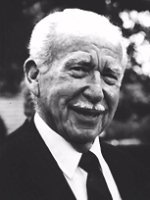
“I cannot give you the formula for success, but I can give you the formula for failure: which is: Try to please everybody.”
–Herbert Bayard Swope (American Journalist, 1882-1958)
Take A Chance!
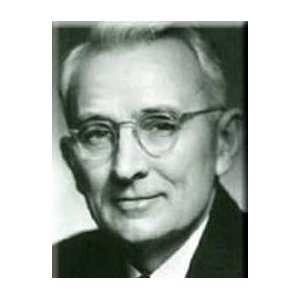
“Take a chance! All life is a chance. The man who goes farthest is generally the one who is willing to do and dare.”
–Dale Carnegie (American Educator and Author, 1888-1955)
Success Is Relative
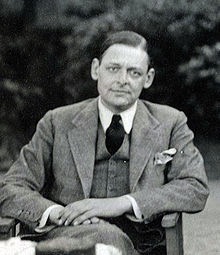
“Success is relative. It is what we can make of the mess we have made of things.”
—
“The Family Reunion” (T. S. Eliot)T.S. Eliot (American-born English Poet, Playwright, and in 1948, Winner of the Nobel Prize for Literature, 1888-1965)
Concentrate Your Energy. And Don’t Stop!
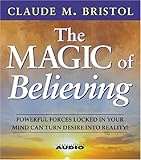
“The Magic Of Believing” (Claude M. Bristol)
“One essential to success is that your desire be an all-obsessing one, your thoughts and aim be coordinated, and your energy be concentrated and applied without letup.”
–Claude M. Bristol (American Writer, 1891-1951)
Laugh Often and Much
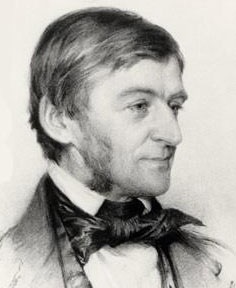
“To laugh often and much; to win the respect of intelligent people and the affection of children; to earn the appreciation of honest critics and endure the betrayal of false friends; to appreciate beauty; to find the best in others; to leave the world a bit better, whether by a healthy child, a garden patch or a redeemed social condition; to know even one life has breathed easier because you have lived. This is to have succeeded.”
–Ralph Waldo Emerson (American Poet and Essayist, 1803-1882)

“The Essential Writings of Ralph Waldo Emerson (Modern Library Classics)” (Ralph Waldo Emerson)
The Look of a Winner
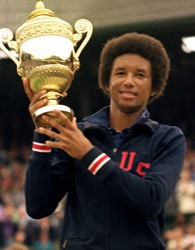
“Regardless of how you feel inside, always try to look like a winner. Even if you are behind, a sustained look of control and confidence can give you a mental edge that results in victory.”
–Arthur Ashe (African-American Tennis Player and First Non-White to Win the US open and Wimbledon, 1943-1993)
Cicero’s Six Mistakes of Man
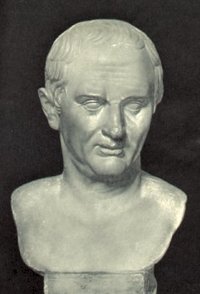
Today is traditionally taken to be the birthday of the great Roman lawyer, political figure, orator and philosopher Cicero, whose full name was Marcus Tullius Cicero. Nobody really knows the exact date of his birth, but for several centuries, January the 3rd it has been.
His life was extraordinarily successful by the standards of the day, and generations of school children learned some basic history and philosophy from him.
We also learned that success is subjective.
Over two thousand years ago he wrote about the “Six Mistakes of Man:”
- The delusion that personal gain is made by crushing others
- The tendency to worry about things that cannot be changed or corrected
- Insisting that a thing is impossible because we cannot accomplish it
- Refusing to set aside trivial preferences
- Neglecting development and refinement of the mind, and not acquiring the habit of reading and studying
- Attempting to compel others to believe and live as we do
Even after all this time, how much has really changed?
I urge you to think about those six and whether any of them are operating in your life. I often use “The Six” as a jumping off point in therapy or workshops: they often help us to focus on some of our false beliefs and perceptions.
And to celebrate his birthday, here are a few choice Cicero quotations from my own collection.
Enjoy and, perhaps, learn something from them.
“A liar is not believed even though he tells the truth.”
“A man’s own manner and character is what most becomes him.”
“A room without books is like a body without a soul.
“A youth of sensuality and intemperance delivers over a worn out body to old age.”
“Advice in old age is foolish; for what can be more absurd than to increase our provisions for the road the nearer we approach to our journey’s end.”
“All things are full of God.”
“As fire when thrown into water is cooled down and put out, so also a false accusation when brought against a man of the purest and holiest character, boils over and is at once dissipated, and vanishes and threats of heaven and sea, himself standing unmoved.”
“As I approve of a youth that has something of the old man in him, so I am no less pleased with an old man that has something of the youth. He that follows this rule may be old in body, but can never be so in mind.”
“As I give thought to the matter, I find four causes for the apparent misery of old age; first, it withdraws us from active accomplishments; second, it renders the body less powerful; third, it deprives us of almost all forms of enjoyment; fourth, it stands not far from death.”
“Avarice in old age is foolish; for what can be more absurd than to increase our provisions for the road the nearer we approach to our journey’s end.”
“Before beginning, plan carefully.”
“Before you trust a man, eat a peck of salt with him.”
“Brevity is a great charm of eloquence.”
“Brevity is the best recommendation of speech, whether in a senator or an orator.”
“By doubting we come at truth.”
“Cultivation to the mind is as necessary as food to the body.”
“Diseases of the soul are more dangerous and more numerous than those of the body.”
“Freedom suppressed and again regained bites with keener fangs than freedom never endangered.”
“Generosity should never exceed ability.”
“Gratitude is not only the greatest of virtues, but the parent of all the others.”
“Great is the power of habit. It teaches us to bear fatigue and to despise wounds and pain.”
“He only employs his passion who can make no use of his reason.”
“He who suffers, remembers.”
“If you would abolish avarice, you must abolish its mother, luxury.”
“In a disturbed mind, as in a body in the same state, health can not exist.”
“In everything satiety closely follows the greatest pleasures.”
“In nothing do men more nearly approach the gods than in giving health to men.”
“Inability to tell good from evil is the greatest worry of man’s life.”
“It is a shameful thing to be weary of inquiry when what we search for is excellent.”
“It is exercise alone that supports the spirits, and keeps the mind in vigor.”
“Justice is the crowning glory of the virtues.”
“Many wish not so much to be virtuous, as to seem to be.”
“Natural ability without education has more often raised a man to glory and virtue than education without natural ability.”
“Nature has placed in our minds an insatiable longing to see the truth.”
“No man is so old as not to think he can live one year more.”
“One who sees the Supersoul accompanying the individual soul in all bodies and who understands that neither the soul nor the Supersoul will ever be destroyed”
“Our minds possess by nature an insatiable desire to know the truth.”
“Reason should direct and appetite obey.”
“Study carefully, the character of the one you recommend, lest their misconduct bring you shame.”
“Superstition is a senseless fear of God.”
“That last day does not bring extinction to us, but change of place.”
“The authority of those who teach is often an obstacle to those who want to learn.”
“The beauty of the world and the orderly arrangement of everything celestial makes us confess that there is an excellent and eternal nature, which ought to be worshiped and admired by all mankind.”
“The beginnings of all things are small.”
“The celestial order and the beauty of the universe compel me to admit that there is some excellent and eternal Being, who deserves the respect and homage of men.”
“The countenance is the portrait of the soul, and the eyes mark its intentions.”
“The cultivation of the mind is a kind of food supplied for the soul of man.”
“The diseases of the mind are more and more destructive than those of the body.”
“The foolishness of old age does not characterize all who are old, but only the foolish.”
“The forehead is the gate of the mind.”
“The function of wisdom is to discriminate between good and evil”
“The harvest of old age is the recollection and abundance of blessing previously secured.”
“The noblest spirit is most strongly attracted by the love of glory.”
“The pursuit, even of the best things, ought to be calm and tranquil.”
“There are gems of thought that are ageless and eternal.”
“There are more men ennobled by study than by nature.”
“There is no grief which time does not lessen and soften”
“There is nothing so absurd that some philosopher has not already said it.”
“Through doubt we arrive at the truth.”
“To be content with what we possess is the greatest and most secure of riches.”
“To the sick, while there is life there is hope.”
“True glory strikes root, and even extends itself; all false pretensions fall as do flowers, nor can any feigned thing be lasting.”
“Virtue is its own reward.”
“We are all motivated by a keen desire for praise, and the better a man is, the more he is inspired by glory
“Whatever that be which thinks, which understands, which wills, which acts, it is something celestial and divine and on that account must necessarily be eternal.”
“When you are aspiring to the highest place, it is honorable to reach the second or even the third rank.”
“Work makes a callus against grief.”







